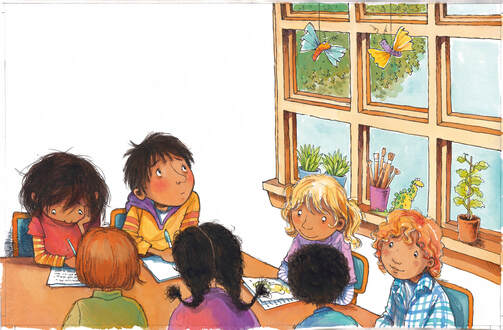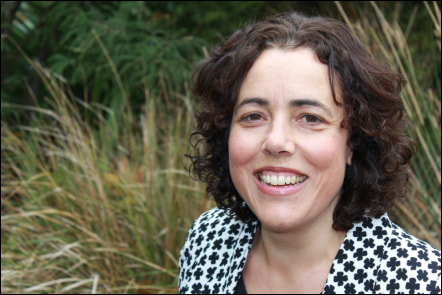Don’t overdo the worry
Be careful not to exaggerate the worry. Your job is to be a stable and firm rock for your kids to lean on as they discover the world and how to be in it. Keep your own worries to yourself. Listening to worries and helping kids find ways through them builds resilience and skill so they can eventually manage their worries themselves. Remember that all your parenting up to now has helped them be resilient and strong.
Have a play in the school playground
Playing alongside your kids can be an easy way to get them talking about what they might be worried about. This creates an opportunity to offer some strategies for if their worry comes to fruition. What if they have no-one to play with? Where will they eat their lunch?
Create or increase your child’s familiarity with their new teachers, or teachers
All kids need to feel connected to their teacher to feel comfortable in the classroom, and in a team teaching environment this is just as important. Until they do, they are not ready to learn. Teachers know this, and “collect” their students emotionally at the start of the school year.
Print a photo of the teacher from the school website, or email the office and ask them to send one. Stick the picture to the fridge and speak positively about her/him.
Get your bedtime routine back into action
Bedtimes naturally slip in the holidays. In the next few days get the bedtime routine back into action to support the night before school starts back with a familiar rhythm.
Let your child choose their own stationery
As much as possible support your child to choose their own school stationery so they feel some ownership and control
Dropping off/Saying goodbye
For many children, the biggest challenge will be saying goodbye to you. Think about how you will do this - will you stay with them prior to school? Or will you drop them from the car? Will they walk or bike or bus to school with a friend or a sibling? What will work best for everyone? Although this can be a difficult time, it is normal to say goodbye to adults and head off to school, so try to minimise the distress around parting by treating it as a normal event. If you are staying prior to school starting, think about who you could hook your child up with when you do leave - perhaps a special friend who you meet in the playground, or their teacher. Let them know what the routine will be, so they are prepared for you to go.
In their bags
You might give your child a small keepsake to hold on to that reminds them of you, such as a cut-out heart with a love, or a small stone you found on the beach together, that she can keep in her pocket while you’re apart and give back upon your return. A book that my children particularly like is ‘The Kissing Hand’ by Audrey Penn. It tells the story of a little raccoon who is afraid to let his mother go at school, so she places a kiss in the palm of his hand for him to hold onto in case he needs it.
A few days before school starts go over the important points of the first day with them.
Discuss who will drop/take them to school, connect them up with some friends if you can, remind them of the books they need to take, ask about a favourite lunch food you can provide, and think together about what they might be doing during the day.
Be prepared for after 3pm meltdowns (and 4pm, 5pm and 6pm...)
Starting something new is exhausting, especially for children. Be prepared for some tears, this emotional release is normal. Just be a listening ear.
Using stories like ‘The Kissing Hand’ or the books in The Worry Bug series can help to support children and begin discussions about beliefs and worries. 5000 copies of the books in The Worry Bug series were distributed to Marlborough ECEs and schools late in 2018 and parents will be seeing and hearing about them when they come home in Term 1.
| Registered psychologist and co-author of the Worry Bug Project resources Julie Burgess-Manning says that anxiety can show itself in unexpected ways. There are numerous ways to deal with anxiety but the best place to start for young children is within their family. Getting families to realise that anxiety doesn’t’ sit within individual members, but it is shown in interactions and relationships, is one of the projects aims. “Anxiety is tough on parents as well as children – it can manifest in numerous ways and it is easy to mistake anxiety for bad behavior. Things like sleep issues, an inability to pay attention, obsessive behavior or even rudeness can be linked to anxiety.” |


 RSS Feed
RSS Feed